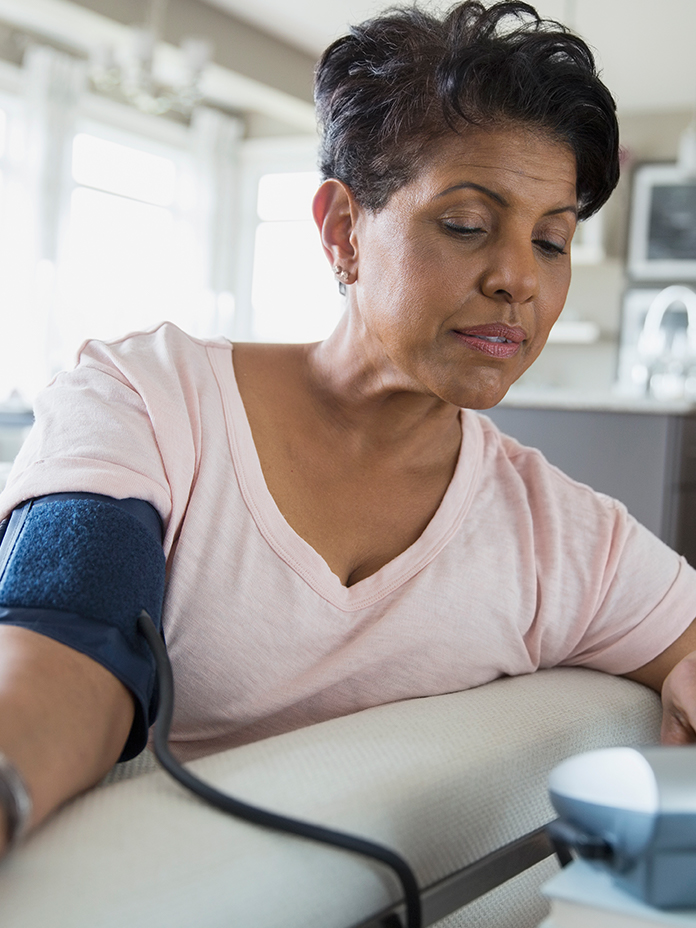
Under the radar
Hypertension is the medical term for high blood pressure. There are two types of hypertension: primary and secondary. Primary hypertension usually develops over a period of years, whereas the secondary variety can come on suddenly and can be caused by several conditions or medications. Both are dangerous, especially because they can lead to a life-threatening illness or event. And, even when your condition is severe, you might not have symptoms.
Some of the main risk factors for high blood pressure are:
- Family history
- Obesity
- Tobacco use
- Drinking too much alcohol
- Stress
- Poor diet
- Lack of physical activity
- Certain chronic conditions (kidney disease, diabetes, sleep apnea)
Possible signs and symptoms include:
- Headaches
- Shortness of breath
- Nose bleeds
It’s important to remember that hypertension is usually not detected by symptoms. The symptoms listed above are non-specific to high blood pressure. And they often don't appear until the condition reaches a critical or life-threatening stage. That's why taking preventive measures is key.
Screen time
The best way to recognize and treat hypertension is to stay on top of preventive screenings. If you’re over the age of 65, it’s beneficial to have your doctor check your blood pressure every 6 months. With your Aetna Medicare Advantage plan, you can get an annual preventive exam at no additional cost.
It’s also recommended that you have your blood pressure checked on both arms to make sure there’s no difference between the numbers. If your screening reveals any cause for concern, your doctor will be able to prescribe the right medication or refer you to a specialist if necessary. Just keep in mind that a copay is required for primary care and specialist appointments, payable at the time of visit.
Get results
When you lower your blood pressure, you lower your risk of heart disease and stroke. That’s why it’s important to know your numbers.
Once you know what your blood pressure numbers are, Aetna can help you bring those numbers down with support programs that are no additional cost to you, including:
This material is for informational purposes only and is not medical advice. Health information programs provide general health information and are not a substitute for diagnosis or treatment by a physician or other health care professional. Contact a health care professional with any questions or concerns about specific health care needs.
